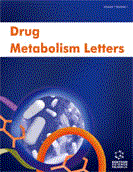Abstract
Recently, a number of synthetic drugs used in a variety of therapeutic indications have been reported to have antiaging effects. Among them, Dimethylaminoethanol (DMAE), an anologue of dietylaminoethanol, is a precursor of choline, which in turn allows the brain to optimize the production of acetylcholine that is a primary neurotransmitter involved in learning and memory. The data presented here includes new information on the ability of the compound to scavenge specific free radicals, assessed by Electron Spectroscopic Resonance (EPR), to further analyze the role of DMAE as an antioxidant. DMAE ability to directly react with hydroxyl, ascorbyl and lipid radicals was tested employing in vitro assays, and related to the supplemented dose of the compound.
Keywords: Radical Scavenger, Dimethylaminoethanol (DMAE), synthetic drugs, ascorbyl radical, lipid, radicals, hydroxyl radical, antioxidant, lipofuscin, ROS
 53
53














